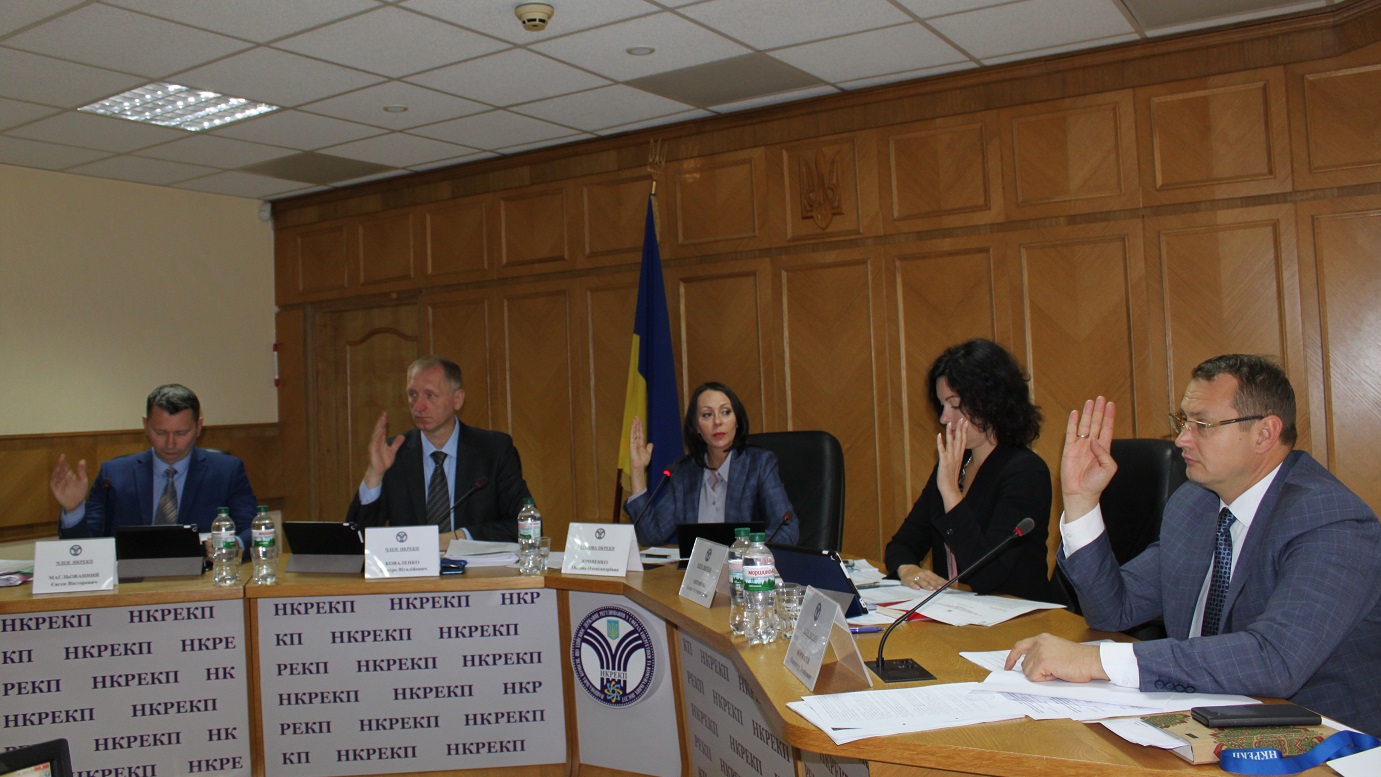President Zelensky may receive control over energy tariffs
Two members of the regulatory authority tendered their resignation, allowing the President to quickly place his people on the Commission and receive a majority in the regulator for at least three months

Five positions at the National Commission for Government Regulation of the Energy and Utilities Sectors (NCREUS) are presently held by Oksana Kryvenko (the Commission’s Chair),Olena Antonova, Dmytro Kovalenko, Yevhen Mahliovanyi and Oleksandr Formahei.
Two are gone but four will come
As of present, two positions of the Commission’s members remain vacant as the replacement contest for these positions has been blocked since the last year by lawsuits from ex-Chairman of NCREUS Dmytro Vovk and Anton Gudachenko, the present head of department for regulation of relationships in the energy sector.
Another two positions will also become vacant if President Volodymyr Zelensky acceptsresignation of Oleksandr Formahei and Yevhen Mahliovanyi.
To adopt decisions, Commission meetings must have quorum of at least four members. Without Formahei and Mahliovanyi, there won’t be quorum.
If the President appoints his placemen as provisional members for all vacant positions, his representatives will have a majority in the regulatory agency. It would be a new quorum giving the President a lever of influence over tariffs in the electricity, gas and heat supply sectors and over regulation of these markets.
How the President can appoint NCREUS members
Two years ago, NCREUS already faced a similar situation: for more than a month, it could not adopt any decisions — neither approve tariffs nor redistribute funds for market participants. The Commission lost quorum because of one of its members, Borys Tsyhanenko, who declared himself ill and was not showing up at work.
A failed rotation of NCREUS members aggravated the situation: in 2017, old members of the Commission had to be gradually replaced with new ones, selected at an open contest. However, because formation of the contest commission was delayed, two members of NCREUS resigned by November and no-one was appointed in their stead.
Back then, after loud public discussions, the Verkhovna Rada allowed President Petro Poroshenko to appoint “provisional” members to NCREUS for three months: Viktoria Morozova and Vadym Taratun. The new commissioners promptly supported all required resolutions, and the energy sector was “defrosted”.
Legislative collisions and risks
This time, the President does not have to fight with the parliament to expand his powers.
The law on NCREUS, which will remain in force until 1 January 2020, states that the President may appoint new members for three months “in the number equal to the number of vacant positions”, if the regulator becomes legally incapable.
Andrii Gerus, the President’s representative in the government and the chairman of the parliament’s energy committee, insists on the effectiveness of this option: “The law says that it is so”.
Dixi Group expert Roman Nitsovych agrees with him, noting that there could be as many "provisionals" as the number of vacancies.
“In other words, given the appointment of four such members of NCREUS, they will constitute the majority and will be able to adopt decisions irrespective of the opinion of their colleagues elected on the basis of contest,” the expert believes.
However, along with the appointment of provisional members the contest commission should have announced a contest for the vacant positions. “Only a contest will allow for a transparent reboot of the regulatory agency’s membership,” Roman Nitsovych says.
But the contest is where serious problems could occur. The contest commission was formed in accordance with the current law, and that’s why it included representatives of the parliament,government and president. The commission formation and competitive selection procedures will become void on 31 December.
“That’s what the Constitutional Court has ruled. Therefore, the very status of NCREUS and formation of its membership depend on changes at constitutional and legislative levels,” Mr. Nitsovych says.
In the meantime, NCREUS Chair Oksana Kryvenko points out the risk which the absence of quorum at the Commission poses to the sector and the country. For example, the regulator has to certify independent electricity and gas transmission system operators by the year’s end.
Certification of the gas transmission system operator is one of the key conditions of the future contract with Gazprom on the transit of natural gas via Ukraine. It’s a sign indicating that Ukraine has implemented the Third Energy Package and that the contract must be compliant with European energy legislation.
However, Mr. Nitsovych believes that due to the appointment of "provisional" members, quorum at the Commission will be restored fast. And as far as certification is concerned, analysis of the submitted document package and preparation of a draft resolution are handled by specialists of NCREUS’s apparatus which remains operational.








